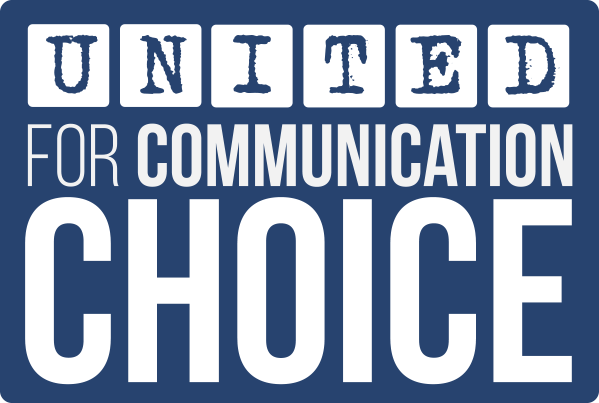Read the PR Newswire release here.
23 organizations call on ASHA to withdraw misguided recommendations on RPM and FC
WASHINGTON, July 17, 2018 /PRNewswire/ — A diverse coalition of 23 civil and disability rights organizations has called on the American Speech-Language-Hearing Association (ASHA) to withdraw two proposed position statements that recommend against the further use of methodologies known as Rapid Prompting Method (RPM) and Facilitated Communication (FC). These innovative methods teach individuals with speech-related disabilities how to communicate independently by typing and pointing to letters on letterboards.
In a letter to the ASHA Board of Directors, the coalition argued, “If ASHA decides to finalize and place its imprimatur on the position statements, the consequences will almost certainly lead to civil rights violations. ASHA’s reputation as a credible and mainstream credentialing organization that supports the rights of individuals with disabilities would be threatened.”
In requesting that ASHA withdraw the flawed proposals, the coalition raised several substantive and procedural concerns, including that the recommendations:
- may cause schools to violate the Americans with Disabilities Act;
- are based on the unfounded and discriminatory presumption that people with speech-related disabilities are incapable of complex thought; and
- were developed behind closed doors and without the input of any users, professionals, or ASHA members with experience with these methods.
Signing organizations include The Arc of the United States, Autistic Self Advocacy Network (ASAN), Burton Blatt Institute, Center for Public Representation, Council of Parent Attorneys and Advocates, Inclusion International, the National Disability Rights Network, and TASH.
ASAN Executive Director Julia Bascom commented that “each non-speaking person has a right to use the method of communication that works best for them.” Bascom said the ASHA statements could “dramatically undermine the right of all people to the individualized supports they may need in order to communicate. Losing an effective form of communication can result in frustration, isolation, and trauma.”
Since being proposed on June 1, 2018, the ASHA position statements have sparked significant stakeholder concern and helped mobilize a parallel grassroots effort to vigorously support communication choice for non- speaking children and adults living with various neurological and motor disabilities, including autism. The resulting campaign is committed to defending every citizen’s right to access their preferred means of communication to express their thoughts. More information can be found at http://UnitedForCommunicationChoice.org.
